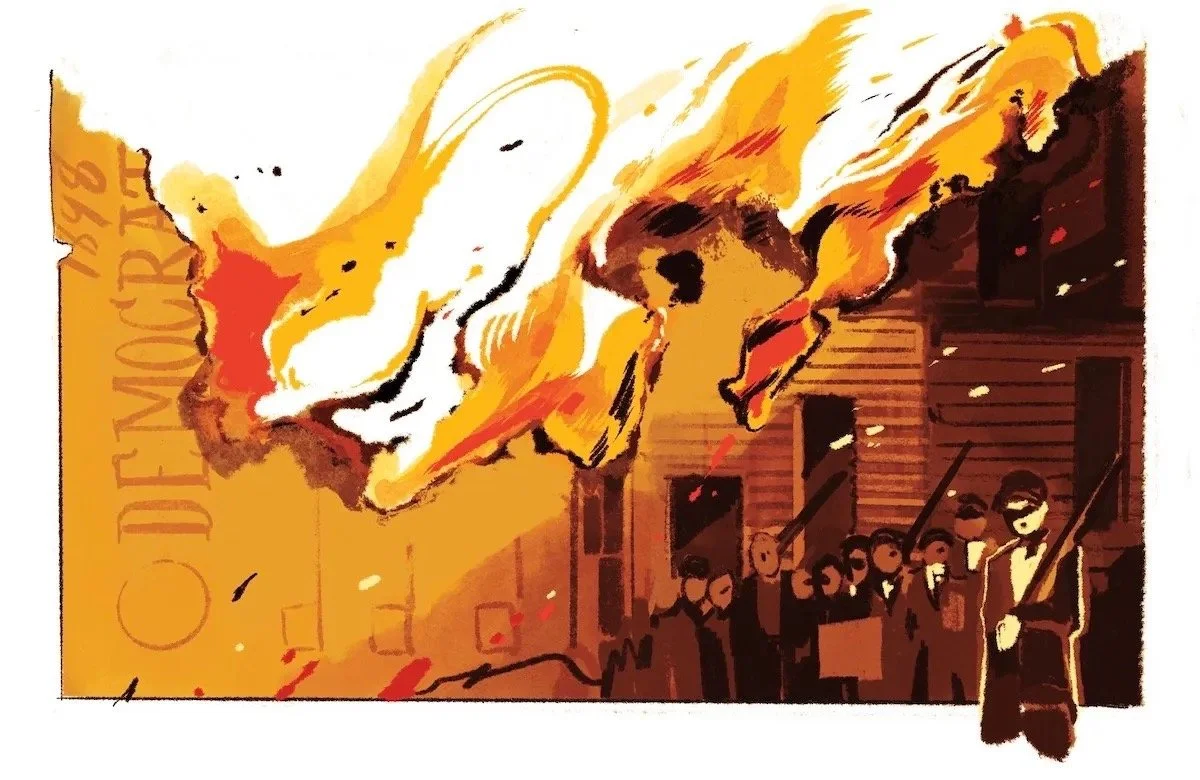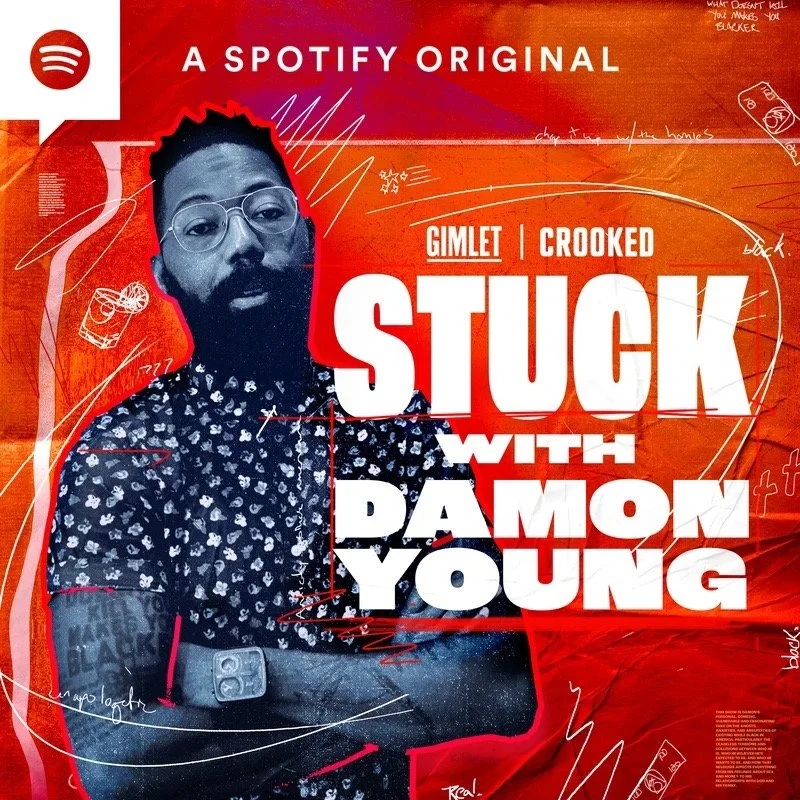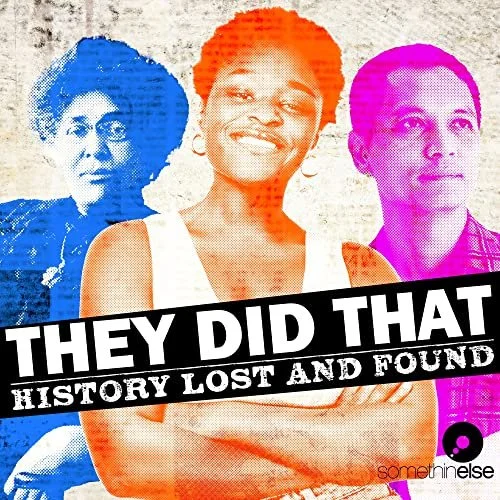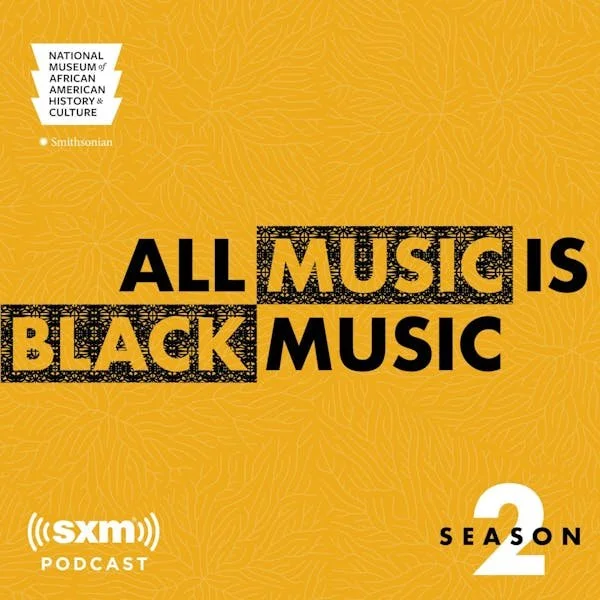Resources
The Making of "Momentum" for LWC Studios' Podcast Still Paying the Price: Reparations in Real Terms
Lead producer Kojin Tashiro takes us through his creative process of making the theme song, "Momentum" for LWC Studios' podcast, "Still Paying the Price: Reparations in Real Terms".
Annotated Transcripts
Our annotated transcripts are filled with additional info and resources to keep the reparations conversation going.
Additional Listening
LWC Studios’ Peabody-nominated 70 Million documentary podcast investigates how locals are addressing the role of jails in their backyards. Our reporters travel around the country and hear from people directly impacted by encounters with jails and adjacent policies, and from those committed to reversing the negative effects on people and communities.
In the two following episodes, reporters Carolina Hidalgo and Chad Davis spend time with criminal justice reform activists in St. Louis, who worked for years to shut down the city's notorious Workhouse jail.
Reveal looks back to a nearly forgotten 1898 election in North Carolina. A coup d’etat gave birth to much of the structural racism that exists today.
In this episode of Stuck with Damon Young, Yamiche Alcindor joins Damon to discuss the battle for slavery reparations in the United States. From history, to current events, they delve into the argument in favor of reparations and the best way to compensate the descendants of slaves for the labor of their ancestors. Then, on Dear Damon, Boston University professor Saida Grundy helps Damon advise a listener who is a descendant of slave owners who wants to give back to the Black community.
The n-word may be the most divisive word in the English language, and its spread in popular culture has been the subject of renewed academic interest. After the National Football League made the controversial decision to ban it on the field in 2014, a team of Washington Post journalists explored the history of the word, its evolution and its place in American vernacular today.
Before 1967, "paramedic" wasn't a word and few first responders had training that went beyond basic first aid. That would all change with Freedom House Ambulance Service. Established in and by an overlooked Black community in Pittsburgh, Pennsylvania, Freedom House Ambulance Service created the life-changing and lifesaving mobile emergency medical care we all benefit from today. Their knowledge would go on to be embraced and practiced all around the world, but the pioneering group would be lost to history…until now.
Surrealist artists Pablo Picasso, Lee Miller, Man Ray and Roland Penrose were so enamored by Ady Fidelin, a Guadeloupan dancer in a Paris cabaret, that she became one of them, going on holiday with them and posing in their nearly 400 photographs and paintings. One of those photographs landed in the pages of Harper's Bazaar, making Ady the first black model in an American major fashion magazine. So how come Ady was written out of books, publications and didn't see any fame for her contribution? And where would Man Ray be without her? In this episode, the story of Adrienne Fidelin, the magnificent muse.
Elijah McCoy revolutionized technology forever—from trains to the factory floor—by allowing steam engines to keep running without frequent manual intervention. In 1872, he invented a device that made steam engines infinitely more productive, but his peers refused to give him credit. They even tried passing off their own attempts, none of which worked as well—leading folks to say in frustration, “I want the Real McCoy!” Elijah was almost lost to history. But thankfully, his wife and a strong community of black activists in Detroit—and Andrew Moodie, a playwright in McCoy’s native Canada—swooped in to save his legacy. Today, the story of how Elijah McCoy became “The Real McCoy.”
Discover pop music’s hidden roots with your host, Selema Masekela. Through interviews with artists, authors and scholars, we explore how African American music and culture has defined the wider contemporary music landscape. Each episode’s theme is inspired by objects from the Smithsonian National Museum of African American History and Culture’s Collection. Original music by Mobley.
There's a running joke in Maringouin, Louisiana, a town of 1,100, that everyone is related. It's funny because, as people in Maringouin will tell you, it's true. Everyone calls each other 'cuz' or 'cousin,' and they mean it. People run into each other on the street, recognize a last name, start talking about people they know in common, then discover they're related.
For a long time, no one knew exactly why. It wasn't like there was a founding family that had moved there. Maxine Crump, who grew up in Maringouin, always wanted to get to the bottom of the mystery. People in Maringouin were just... different from many of their neighbors. For one, there were a lot of black Catholics who didn't speak any French.
"People used to say: You're from the bayou area where a lot of people speak French. Do you? And it was like: No," she'd say. "No, none of the Black people speak French." There were rumors and theories, but she never got an answer.
In 1838, Jesuit priests sold a group of 272 men, women, and children - slaves - to pay off Georgetown University's debts. The slaves were sent from Maryland to Louisiana. In part one of this two part episode, we told the story of how the residents of a small town discovered where they'd come from. Now in part two, we ask what, if anything, Georgetown owes the descendants of those slaves.
Georgetown has announced that it will offer preferential admissions status to descendants of the 272 who apply there. And the Georgetown Working Group that's studying the school's links to slavery says it has "frequently returned to the question of reparations...convinced that reparative justice requires a meaningful financial commitment from the University."
But there's division among the more than 4,000 descendants scattered across the country about whether Georgetown should pay anything. Some say yes, we are owed money. And others say no, you can't put a dollar figure on our ancestors' lives.







